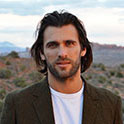 |
November 7, 2019Dr. James Bradley, Queen Mary University of LondonThe power of microbial life in marine sediments |
Abstract
Marine sediments harbor more than half of all microbial cells in the ocean, many of which have been shown to survive for millennia – calling into question the limit for life. The energy turnover, i.e. power, of subseafloor microorganisms sets a limit on gene expression, mutation rates, and the survival of rare and novel taxa. However outside of measurements, laboratory experiments and modelling from specific sites, the power of subsurface life is virtually unknown. Here, we simultaneously quantify the distribution, rate and thermodynamic properties of particulate organic carbon degradation, as well as the global distribution of cells, and electron acceptors. Based on these factors, we estimate cell-specific power utilization in all Quaternary sediments. We report extreme and widespread energy-limitation in subseafloor sediments: >80% of cells subsist at powers that are less than the lowest energy flux calculated for any microbial habitat previously. Furthermore, we find global delineation of major subsurface metabolic zones, with stepwise decreases in per-cell power utilization following the redox state of the sediment. We assert that sediments should be considered as critical to understanding the cell-specific minimum power requirement for survival, as well as to predict the habitable boundaries of life on Earth.
Speaker Biography
James Bradley earned his PhD in Arctic soil biogeochemistry from the University of Bristol in 2016. He was subsequently awarded a C-DEBI postdoctoral fellowship, followed by a Deep Carbon Observatory DLMV fellowship, working at the University of Southern California and modelling microbial communities, bio-energetics and organic carbon degradation in marine sediments. James was recently appointed as an Assistant Professor at Queen Mary University of London, where his research interests broadly fall within geomicrobiology and environmental science: particularly developing modelling and experimental approaches to investigate the deep biosphere, glaciers, and Arctic soils.
Recording

